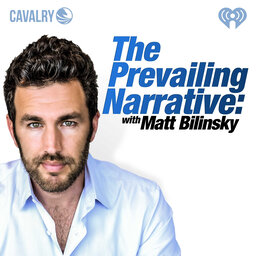Episode 18: Health Scientist Max Lugavere on Nutrition, Health Hacks and Wellness Culture; The Oscars and The Slap that Launched A Million Takes
3:11 - The Decline and Desperation of the Oscar's and American film industry
16:07 - Will Smith slaps Chris Rock and launches a million unnecessary culture war takes; also - Will Smith...the male Taylor Swift????
28:04 - Interview with Max Lugavere: Top 100 podcaster takes us on his unique journey through the world of health and wellness, and some insight into the narrative battles within it.
 The Prevailing Narrative with Matt Bilinsky
The Prevailing Narrative with Matt Bilinsky


